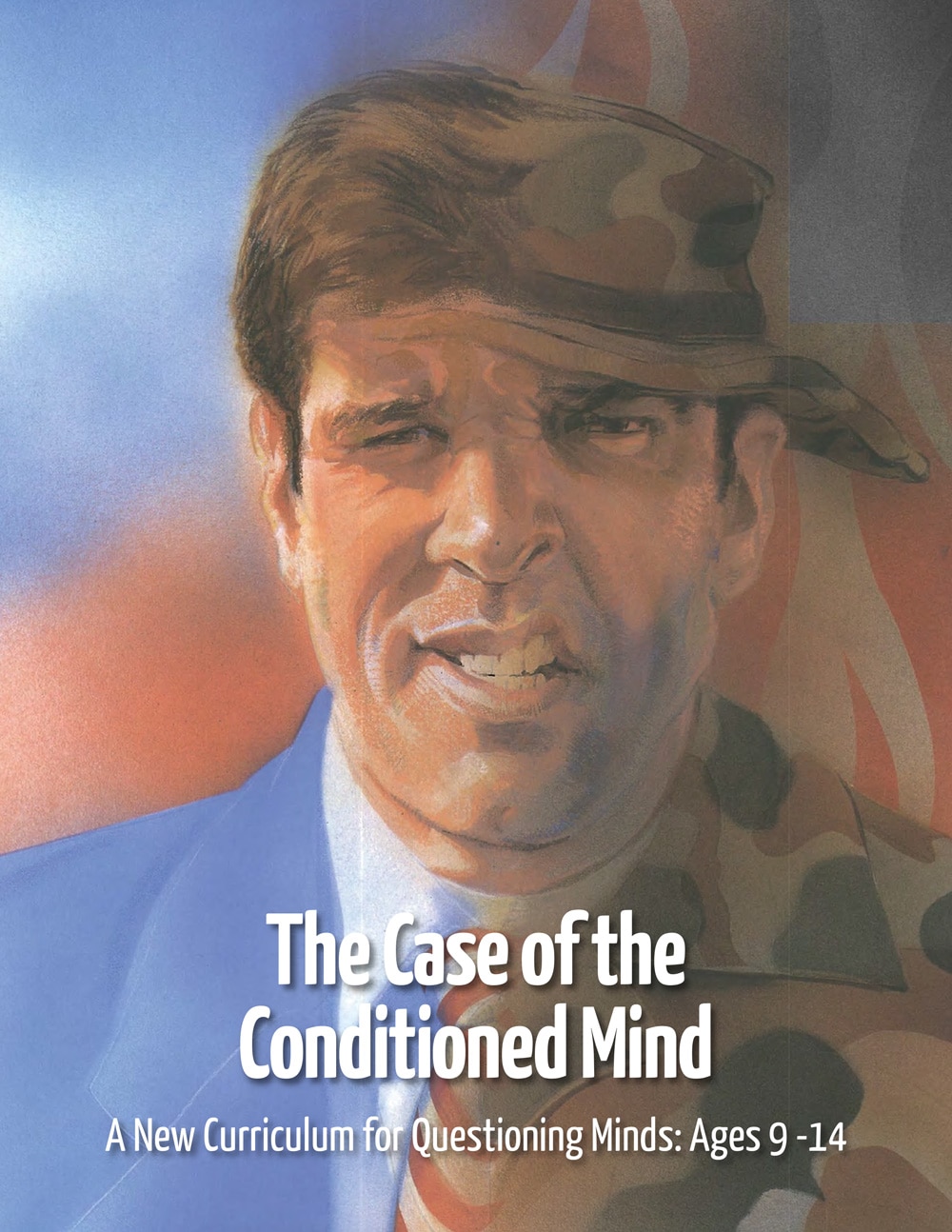The Case of the Conditioned Mind
Prefer a print copy? Request it here.
The Case of the Conditioned Mind: A Curriculum for Developing Questioning Minds & Preventing Conflict
Why do conflicts start? How do our thoughts shape the way we react? The Case of the Conditioned Mind is a downloadable curriculum designed to help young people think critically, challenge assumptions, and prevent conflict before it begins. By recognizing how conditioning influences their thoughts and actions, students will learn to approach conflict with curiosity instead of automatic reactions.
Why This Curriculum Matters
Most conflicts don’t start from nowhere, they come from unexamined beliefs, social conditioning, and misunderstandings. This curriculum helps students uncover how their minds are shaped by external influences, empowering them to make conscious choices and resolve disputes peacefully.
What Students Will Learn
- Recognizing the Conditioned Mind – Understand how society, culture, and personal experiences shape thoughts and reactions.
- Thinking Critically About Assumptions – Learn to question beliefs, challenge biases, and approach situations with an open mind.
- Preventing Conflict Before It Starts – Identify conditioned responses and de-escalate tensions early.
- Resolving Conflicts Peacefully – Explore nonviolent strategies for handling disagreements and building stronger relationships.
Engaging & Interactive Learning
- Real-World Scenarios & Role-Playing – Apply critical thinking to everyday conflicts and explore peaceful alternatives.
- Group Discussions & Reflection – Share experiences, question conditioned thinking, and develop self-awareness.
- Hands-On Activities – Step outside automatic responses and practice mindful decision-making.
Valuable Resource for Educators, Parents & Counselors
Perfect for classrooms, workshops, and group settings, this curriculum provides structured, age-appropriate lessons that foster emotional intelligence, curiosity, and thoughtful conflict resolution.
- Age-Appropriate & Accessible – Uses relatable language and engaging activities to simplify complex ideas.
- Downloadable & Flexible – Available as a PDF for easy integration into any learning environment.
- Practical Conflict Prevention Tools – Teaches students how to recognize and address conflicts before they escalate.
Help Students Think for Themselves & Build Peaceful Relationships
By uncovering how conditioned thinking affects behavior, students gain the tools to make more conscious choices, challenge negative patterns, and create positive, empathetic interactions.
